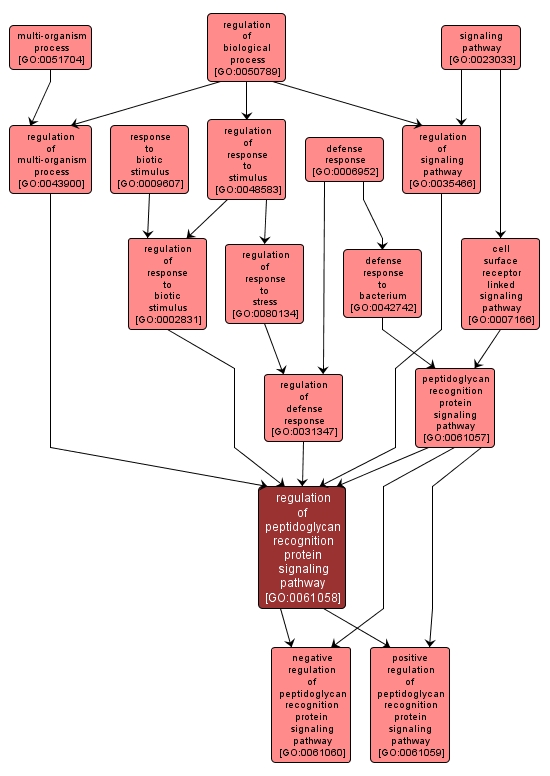GO TERM SUMMARY
|
| Name: |
regulation of peptidoglycan recognition protein signaling pathway |
| Acc: |
GO:0061058 |
| Aspect: |
Biological Process |
| Desc: |
Any process that modulates the rate, frequency, or extent of the peptidoglycan recognition protein signaling pathway. |
|

|
INTERACTIVE GO GRAPH
|














